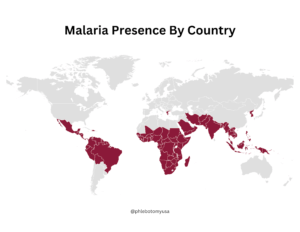22 May Why Traveling Taints Your Ability to Give Blood
 Traveling is one of life’s greatest joys. Experiencing new cultures, tasting different foods, and marveling at the world’s wonders can be exciting. But did you know that your recent overseas adventure might impact your ability to donate blood?
Traveling is one of life’s greatest joys. Experiencing new cultures, tasting different foods, and marveling at the world’s wonders can be exciting. But did you know that your recent overseas adventure might impact your ability to donate blood?
Here’s why traveling can temporarily halt your noble intention of blood donation:
1. Disease Hotspots
Some of our favorite destinations are, unfortunately, hotspots for diseases like malaria, dengue, and Zika virus. While you might return with only good memories, there’s a risk that you might unknowingly be carrying a disease that can be given to others through blood.
2. Silent Carriers
Ever heard of diseases that play hide and seek? Some illnesses have long incubation periods. You might feel perfectly fine, showing no signs of sickness, yet you could still be a carrier. Donating during this time can accidentally transmit the disease to someone else.
3. Emerging Health Threats
Our world is constantly changing, and so are the health risks within it. New infectious diseases can emerge, and travelers might be among the first to be exposed. Until health agencies fully understand and issue guidelines on these new threats, it’s safer to defer blood donations from recent travelers.
4. Prion Diseases
Remember the mad cow disease scare? Extended stays in certain regions, especially parts of Europe, might expose you to prion diseases. Prion diseases are untreatable and deadly brain diseases. Since there are no screening tests and they can be transmitted through blood, travelers to these regions might face deferrals.
5. Medical Records
Falling ill overseas can lead to another complication. Sometimes, the medical care received abroad might not be documented to the standards required by blood donation centers, making it challenging to assess donor suitability.
6. Vaccine Vacation
Pre-travel jabs are a norm for many destinations. However, some of these vaccines, such as yellow fever or rabies, can mean you’ll need to wait a bit before you roll up your sleeve for a blood donation.
In Conclusion
While the world beckons with its experiences, it’s essential to remember the broader impact our travels might have, especially if you’re keen on donating blood. But don’t let this deter you! Plan, stay informed, and once you’re clear, you can resume your valuable contributions to the blood bank. Safe travels and safe donations!

